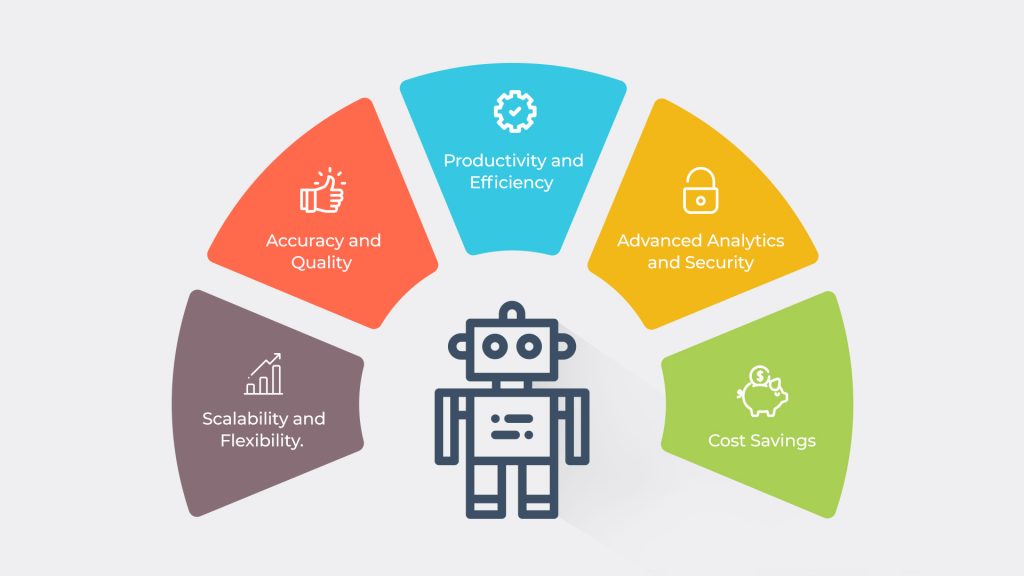Initially, process engineering sought to adhere to lean design principles. Processes would be documented, reviewed and improved by removing wasteful steps and adding scripts where possible to eliminate human intervention and potential errors. Upon process improvement Robotic Process Automation(RPA) started largely as a tool to mimic those repetitive, rules-based front-end workflows.
After the success in many sectors, RPA is being rapidly adopted across industries because of the multiple benefits it offers. These are some industries which are already benefiting the most from Robotic Process Automation(RPA):
Financial Sector
Operational Efficiency
RPA plays an important role in operations. In order to automate activities, RPA can do high-frequency tasks while reducing processing time and 50-70% cost will be saved. Since RPA is easily implemented into the existing administrative infrastructure, It helps increasing productivity by reducing human cost and gives more flexibility and control over the financial workflows and business processes.
Risk Management
Compliance and Risk management is automatically taken care predefining process and every step is logged which is not in case of human interaction with applications.
HealthCare Sector
Higher Throughput
With the help of RPA, healthcare will be better equipped to deal with the growing volume of patients that are difficult to deal with when managed entirely by humans. While automation handles a larger number of patients, medical personnel can focus on other important areas or work.
Improved Quality and Consistency
Robots can do laborious repetitive work 24X7. They can provide consistency in care activities. An automation in the areas of medical records, order entry, claim processing and decision support is linked with a reduction in complications and costs in order to improve quality and provide consistency.
Insurance Sector
Underwriting
Underwriting involves collecting all of the necessary information from all of the various sources in order to properly evaluate the risks associated with any specific policy, and it’s generally a process that takes quite a long time, one that, in fact, causes millions of people just to give up before the process is even complete. Since RPA can automatically collect and process accurate data as it relates to the applicant from both internal and external sites very quickly, the entire process is dramatically expedited.
Claim Processing
The claims processing is completely dependent on process speed and accuracy to meet customer expectations. It requires the collecting of data from various sources, which is also typically a long and manual customer service operation, RPA is there to reduce the process steps, amount of time spent on performing repetitive processes and human errors.
Drop us a line, If you are willing to know more about RPA and how we are helping these industries to automate their processes.
Knowledge thats worth delivered in your inbox





